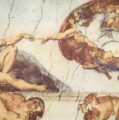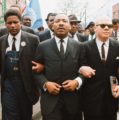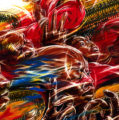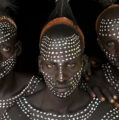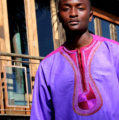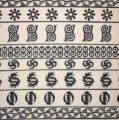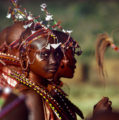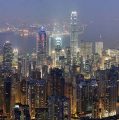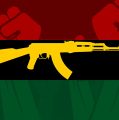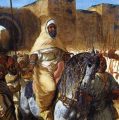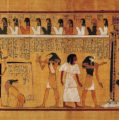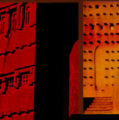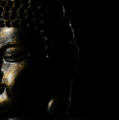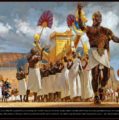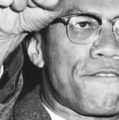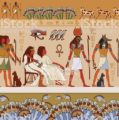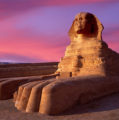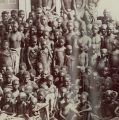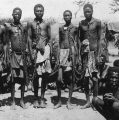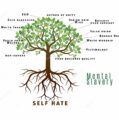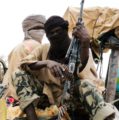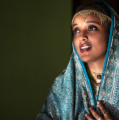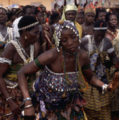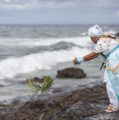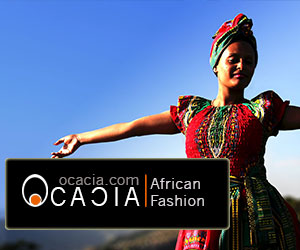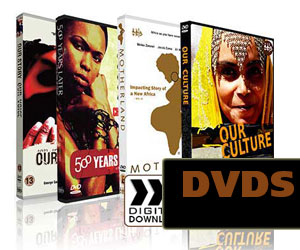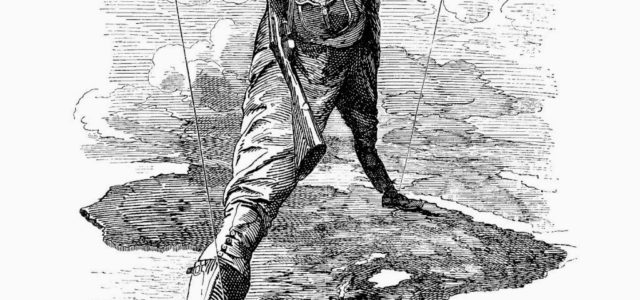
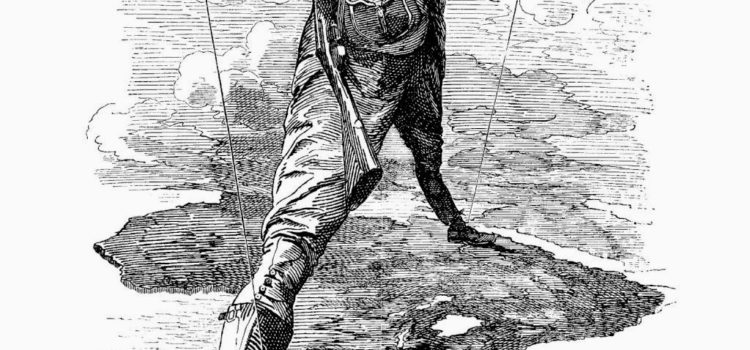
Eurocentric hegemony and African recolonization
Politics February 22, 2014 Kwanisai Mafa

Abstract
There is imperative need to understand the fact that Africa attained the flag and national anthem independence only. A critical analysis of 21st century Africa clearly indicates that Eurocentric principles, values and practices are still evident, it is clear that far too many African states have been captured and have become subjects of Eurocentric hegemony in a fashion that is reminiscent of recolonization. Admittedly, there is a fresh impetus to generic Eurocentrism globalization. History and contemporary information both demonstrates that US – European fascist’s constructs are involved in sponsoring criminal warlords, wars and generic destabilization processes. These processes are in fact nothing more than opportunist criminal movements and corrupt political parties who are focused on the destabilization of Africa. The imperialist goals, then, are the creation of disorder and general political-economic chaos. This process is intended to generate criminal opportunities for the fascistic super USA and their subordinate imperialist powers in Europe and beyond. The imperialist goal here is to continue the looting and plundering of Africa’s resources for the benefit of metropolitan Europe and the USA. Therefore, it is clear that Africa’s independence and sovereignty stands at the crossroads as Eurocentric hegemony prepares to take over once again the economic opportunities and means of production across the African continent..
Introduction

Cecil John Rhodes Dream From Cape to Cairo
A closer analysis of the Eurocentric Hegemony in Africa clearly indicates that out of fifty four countries in Africa only Ethiopia and Liberia escaped the classical colonization of the Imperialists. It is clear that Liberia can be understood as a form of neo-colony as the Africans who took control of that part of our continent imposed a “tiny” Americanist political-economic structure that comprehensively imitated the settler state (USA) completely. Ethiopia on the other hand has been a great asset to Africans and the rest of humanity as their military prowess proved difficult to suppress as for example their brilliant victory against the colonial Italians in the 19th century. However, today, the Ethiopian state has succumbed to global imperialism and the neo-colonial effect of today irrespective of yester year courage and a principled stance against colonialism.
An understanding of Eurocentric hegemony in Africa highlights that , African history is replete with internal and external destructive factors, such as indigenous traitors and imperialist mass murderers from Western Europe and their main offshoot the USA.From the time of hunters and traders up until the time of imperialist explorers– such as David Livingstone, Europeans have discovered great wonders in Africa. This European knowledge of Africa’s wealth goes back millenniums, as the ancient historians of Greece and Rome carefully documented for their piratical political-economic processes.
For example Herodotus of ancient Greece and Gaius Sallustius Crispus of Rome. These European “historians” are the “ancestor – fathers’ who concocted the false history that most academic institution foist upon the world to conquer a people, you must also conquer their mind. And the distortion and rape of history is one of the most effective tools of warfare ever devised. So, it is clear that Europeans have knowledge of not only the African land’s great riches, minerals such as silver and gold. This process not only negatively impacted Africa it also altered the course of the world. As the Europeans who followed the Greek- Macedonian and Roman brigand pirate states, consolidated their global criminal enterprises.
Thus, the world has been victimized by the western European hegemony. This was beginning of the enslavement of the African Continent and Peoples. This history of the extremely negative acts of the European slaver, mass murdering, societies wrought terrible consequences for the African peoples and the continent as a whole was plagued by an externally imposed regime of weakened social structures. This extremely violently imposed backwardness (remember that Seku Ture wrote that 300 million Africans were seized in the European triangular slave trade) hampers the development of our social, economic and political power.
This has been documented by many scholars of our history, such as Walter Rodney (as well as others, and especially Dr. Kwame Nkrumah and Seku Ture) puts it 1)1Walter Rodney, How Europe Underdeveloped Africa, Bogle’Ouverture Publications, London and Tanzanian Publishing House, Dar-Es-Salam, 1973
Nevertheless, the people of Africa resisted using every available strategic and tactic available, including revolutionary wars of liberation to establish sovereignty and independence as a free people and nation. There is need to comprehensively analyze the ongoing African liberation war, and indeed Africans all across the planet are beginning to comprehend that achieving true independence is much more than a flag and national anthem Thus the African revolution realizes that the successor to colonization, neocolonialism has emerged as the biggest threat to contemporary Africa. Africa under the auspices of US-led, dominated globalization, is still not free.
Africa has the “trappings” of independence but no POWER. The wars imperialism has imposed on Africa such as Libya or the political-economic attacks on the continent general, continues the strengthen neo-colonialism in Africa. This is essential to monopoly capitalism’s imperialist and neo-colonial system. Neo-colonialism is best understood when viewed as a system which is the source of endless plunder of global resources. These mass global war crimes, which channels Africa (and other parts of the globe)’s riches to the US. And as we know the US has complete control of the western European countries. Therefore, it raises more questions than answers, for example, will the African leaders put an end to all the endeavors of the European criminals or will Africa (and Africans) forever live under the inhumane, inhuman, diabolical threat of US led global hegemony and recolonization.
________________________________________________________________________________
Colonization

slavery
When Africa was colonized, by the British, French, Germans, Italians and the Portuguese, with the guidance and support of the USA, the foundation for not only generic colonialism, but also settler colonialism and today’s primary weapon against the oppressed and exploited peoples if the, neo-colonialism. It is a well-known fact that, in the contemporary world, the USA’s role is dominant. Even early on the USA played a key role in the seizure of Africa as well as her peoples. Remember the US was an active observer of the Berlin Conference which consolidated the agreements for the carving up of all of Africa, except for US-controlled, conceived and dominated Liberia and Ethiopia, The US consistently plays the central role of the assassinations of leaders such as Lumumba, Cabral. Dr. King, Omowale Malcolm X, et al,
The US directed global imperialism utilize the medium of films, radio, newspapers, television, music and every other form of propaganda to better control Africa and the world’s Africans. The imperialists justifies conquest in many ways, And one method is the projection of Europeans as superior relative to the rest of humanity and of course as God’s chosen race.
The colonisers aim was to undermine African confidence in themselves in African cultural achievements, religion and a way of life. After seeing these films and theatrical performances for instance, Africans were supposed to renounce their traditional values in favour of the new values of Christian individualism or European culture as propounded by the modernization theory of development. Thus through the various media , European colonial managed to reshape , control and dominate the minds of Africans so that they would become compliant with colonial “exploitative” economic interests. During the colonial era Africa at large and African humanity in particular were identified with a totally fictitious form of barbarism and other sorts of degradation in the African social, economic and political status of the people of Africa.
In the past many Europeans considered Africa as the Dark Continent, a saying that had blind indications and it carries a concept of the “civilizing mission” trumpeted by Europeans during the era of colonialism in the nineteenth century. In his now infamous poem “The White Man’s Burden,” Rudyard Kipling considers European colonization of Africa as a blessing to Africans but a huge burden for Europeans. Europeans pretended to bring civilization to Africans. And individuals and agencies such as the racist genocidal Kipling or the USA fascist, racist settler are at the very core of colonial genocidal criminality.
Their goal was to convince the world that the “backward” African peoples need external development that only they could give Africa and the globe’s Africans. They built their ideological constructs that falsified human history to show Africans as a degenerate people, incapable of development and civilized behavior 2)2Rudyard Kipling, “The White Man’s Burden,” McClure’s 12, no. 4 (1899): 290–91, as reprinted in Dennis Sherman, Western Civilization: Sources, Images, and Interpretations (New York: McGraw-Hill, 1995), 271–72. European cultural benchmarks were used in determining what civilization entailed, and who was or was not civilized. Since Europeans were themselves the judges, determining the nature of a civilized culture (particularly in the political economic arena, which defines the social milieu), or) based on the backward western European model. Since colonialism justified and legitimized itself on the assumption of the superiority of the white race (Europeans) over blacks (Africans), it became quite logical for European colonizers to discredit the existing culture of the colonized Africans no matter how superior African culture was to the European historically before the war to make our society a market for mafia-centric “commerce”.
Therefore, only the European hegemony was credible and Africans had to harmonize the African way in a manner that makes it suitable for the European fascistic global system. Consequently, African societies (including their indigenous democratic values) that were not considered “civilized” by the European criminals, were portrayed as barbarous and, therefore, stood in need of “civilizing.” It was a uniquely cruel union between cultural arrogance and a false mask of “altruism towards the savage” so to speak. Thus, in reality, the supposed burden was an effort to replicate or reproduce European models and values in Africa— this initial form of colonialism was forced to switch tactics to neocolonialism with the emergence of the Nkrumah led anti-colonial war.
For the capitalist class the world is all about comprehensive European hegemony. Moreover, since colonialism was justified by scientific racism, the superiority of whites over blacks, Europeans mystified themselves in the eyes of Africans through deadly force, ideological weapons and outright dehumanization of Africans and all of African culture. Africa’s historic leadership of humanity, our innovations and creative were systematically debased. And for those who rejected European dictates – they were horribly massacred. Nevertheless, the enslaved Africans never stopped fighting even in the world’s first modern concentration camps – slave plantations and its linear descendants such as contemporary US prison system.
Franz Fanon affirmed that, “the native is declared insensible to ethics; he represents not only the absence of values, but also the negation of values. . . . He is the corrosive element destroying all that comes near him . . . ; he is the depository of maleficent powers, the unconscious and irretrievable instrument of blind forces.” 3)3Frantz Fanon, The Wretched of the Earth (New York: Penguin, 1967), 32.. It also needs to be noted that the work of missionaries who collaborated with their counterparts opened a leeway for the colonizers and what followed next was the scramble for Africa.
From Cape to Cairo, hegemonies were established although, as history has noted the African peoples engaged in a fierce resistance that continues to this very day. Indeed, the advent of colonialism had far reaching implications in Africa. Western cultural imperialism was, and still is implemented, inter alia, by the church and its missionary acolyte’s .Missionaries instilled Eurocentric value systems that they deemed vital for the successful conversion of the African people and political-economic society – that is as docile beings much like the “Eloi” in H. G. Well’s science fiction book (which was made into a film later) he called “The Time Machine.” .
History however, does not fear such vicious colonial arch-criminals such as Cecil John Rhodes who supported the invasion of rich African territories which had huge amount of gold reserves. Hegemonies were established through deceitful treaties. A good example is Rhodesia (now Zimbabwe) were in 1887 a friendship treaty called Grobbler treaty was signed between Lobengula and the Portuguese who aimed to plunder the resources. This was ended by the British’s Moffat treaty and the Rudd Concession in 1888 with Lobengula after they bribed his Indunas (Lotshe) to influence him. Forts were established across the African continent (Fort Tuli, Fort Victoria, Fort Salisbury) a true reflection of the European hegemony in Africa. Of course all the profits were transferred to European Nations which allowed them to strengthen the lie of Africa’s backward and need of European (that is white) guidance. Which really meant huge profits for the criminal European elites. Their investments were made solely to enrich the European capitalist class and to placate their citizens much as their model the Roman Empire did with the bread and circuses they bribed the Roman citizens with.
_____________________________________________________________________________
African Independence

African Independence
Eurocentric Hegemony in Africa brought turmoil, suffering and horrific victimization of the African populace. However, so much credibility can be extended to a spectrum of African leaders such as Kwame Nkrumah, Amilcar Cabral, Julius Kambarage Nyerere, Haile Selassie, Ahmed Sekou Toure and the martyred Gadhafi, among others. The people of Africa organized revolutionary wars and political, economic and generic cultural struggles were fought all over the African continent, a reality that was also reflected in the combat against Europe waged by the still captures Africans of the Diaspora along with our people on the continent. As Cabral said of Nkrumah, it was he who launched the modern day liberation movement and modern day Africa.
It was Nkrumah who initiated the modern African liberation movement including the military aspects. The first real military camps for African liberation was founded by Nkrumah in Ghana and the liberation movements of the continent finally had a base. This was particularly important to southern African states such as occupied Azania and contemporary Zimbabwe, but also to the struggle elsewhere on the continent. Countries such as Tanzania where the maji maji uprising derailed the European hegemonic concepts. Similarly in Zimbabwe the armed struggle was also fierce hence the minority hegemony was nothing but a defeated regime. What followed after years of long suffering and bloodshed was the African Independence that first took place in the successful Ghana political defeat of the British occupation by the year 1957.
However, countries such as South Africa are still being administered by European master players in which only the criminal racist elements continue to impede the African populace in its ongoing liberation Africa. Specifically, without our recovery of our land we remain nothing but modern day slaves where ever we are in the world/.
According to Nash Africans have rarely exercised any real freedom of action. Most efforts in the direction of independence of thought and action have been frustrated by the frequent intervention of the European capitalist powers in pursuit of their own agendas. He went on to suggest that Africa’s vital interests are usually subordinated to those of the West, as is now the case in this new era of globalization. Faux democracy and democratization now constitute an important part of the spread of Western values and hence Western dominance throughout the world 4)4Nash, Contemporary Political Sociology, 256.. Therefore, we must understand that monopoly capitalism and imperialist hegemony is still a dangerous factor which must be confronted and comprehensively defeated and dismantled across the planet.
Western extortion of Africa continues to complement their wars against the African people and continent. It is essential that those Africans in league with imperialism are understood for what they are, the African reaction. This reactionary African class is given guns and some training supplied by their western masters. Armed with this they go forth and massacred our people in the interest of monopoly capitalist interests primarily in the US, which is now the complete and lone ruler of the capitalist world. In point of fact the US owns Western Europe just as it owns the bulk of Africa, the \Pacific Ocean area and the Americas Itself. Africa is facing a capitalist slave master who forces states to give the control of their human and material resources, such as vital raw materials. The slaughter in Darfur (western Sudan) in the early twenty first century is partly if not mainly due to this, as is, for example, the situation in the Niger delta in Nigeria.
________________________________________________________________________________
Power struggles and Neocolonialism

The western powers have also tried to control who runs African countries. The best documented case of western involvement in the murder of elected heads of state is that of Patrice Lumumba of the Congo, murdered with the complicity of Belgium and the USA in 1961. Lumumba was a Pan-Africanist and believed in the necessity of freeing Africa from European economic domination. The USA got involved in his removal from power for two reasons.
Firstly, they were interested in the Congo’s copper, diamonds, cobalt, oil, uranium, and other minerals. Secondly, the 1960s were the time of the Cold War between the United Soviet States of Russia (the USSR) and the USA. In this paranoid era the USA needed someone it could trust and encourage to derail any moves by the USSR to influence Africa or procure materials. It paid Mobutu Sese Seko to help in the murder of Lumumba and then helped him organise a coup d’ état in 1965 (he was given an aero plane, for example).
The corrupt Mobutu then ruled until 1997, acting as the USA’s watchdog. He suppressed all attempts in his own country to stop exploitation by the neo-colonial powers and helped to crush any such movements in neighboring countries. For this the USA ‘gave him well over a billion dollars in civilian and military aid’, much of which ended up in his own pocket: his private wealth was ‘estimated at $4 billion’ 5)5 Hochschild,Adam King Leopold’s Ghosts, London 2000, p.303).
Congo became impoverished despite its vast mineral wealth, partly because of corruption which was the product of those who derive huge profits from African deaths and land theft, In the Congo the imperialist were given status as non-taxpaying foreign investors. Riots ensued and Mobutu was overthrown in 1997. The USA’s involvement in the overthrow of Kwame Nkrumah, the socialist, Pan-Africanist president of Ghana in 1966 was the key battle of the entire African Revolution to date. And we need the logic of African Revolution that he preached now more than ever. As we are in a global war which will determine if monopoly capitalist classes of Europe and the US, particularly, succeed in enslaving the world. Or will we organize and unite to defeat it. .
It also needs to be highlighted that recolonization has become a biggest threat not only in Africa alone but also in the Middle East and other parts of the world. Basil Davidson is of the view that… As postwar nationalist pressures in Africa and the aftermath of the war in Europe made European powers more aware of the need to prepare for the decolonization of their African colonies, they began to forge a new type of relationship that would help them maintain their influence in Africa, indirectly, in the event of actual independence. This was what became known as neocolonialism, “a many-sided attempt by outside powers to tie the new nations closely to the interests and needs of those outside powers.” 6)6Basil Davidson, Modern Africa: A Social and Political History, 3d. ed. (London: Longman, 1994), 197.. Moreover, since the end of the Cold War, the emergence of a unipolar world and the beginning of the era of globalization, there is a renewed emphasis on democracy and democratization. It is quite auspicious to ask: what does Europe desire for Africa? Democracy! What type of democracy and for whose benefit? As with Kipling’s justification for European colonialism, would it be out of place to assume that democratization would be another “burden” for the West? 7)7Jackson Spielvogel, Western Civilization: A Brief History (Belmont, Calif.: Wadsworth, 1999, 87.. To add more we cannot deny the fact that European countries have since sponsored extremist regimes or different warlords in Africa to cause social, economic and political turmoil or confusion in order to infiltrate the African grounds and best serve their interest at an African expense. A good example of African countries filled with such violent means include Libya, DRC, Nigeria, Rwanda only to mention a few.
The collapse of the Soviet Union and the end of the Cold War created a unipolar world under which the value of Africa was greatly diminished. According to Samuel Decalo, “What literally transpired was a massive devaluation in the ‘worth’ of Africa. African states were transformed from Cold War pawns, into irrelevant international clutter.” 8)8Samuel Decalo, “The Process, Prospect, and Constraints of Democratization in Africa,” African Affairs 92 (1992): 17. He went on to mention that African states that depended on Soviet financial and military assistance began to collapse as their patron (USSR) withdrew its support. Worse still, a drastic fall in commodity prices further reduced the viability of most African states as they turned to the IMF and World Bank for funds. As a result, “simultaneous with the increased domestic pressures for change, and the new global balance of power, came powerful international demands for ‘better governance’ (an end to corruption), more democratization (civic and human rights), and ultimately, a free economy.”9)9Samuel Decalo, “The Process, Prospect, and Constraints of Democratization in Africa,” African Affairs 92 (1992): 17.. Therefore, it can be argued that this precarious situation left many African countries with no option but to turn their heads to the IMF and the World Bank who demanded a condition of political change for further loans to Africa. In other words they were strings attached which served the best interest of the victorious powers over Africa.
________________________________________________________________________________
Globalization and Democracy

Basil Davidson subscribe to the view that developed countries have not faced the democratization project in Africa with any sense of consistency. While European colonial rule wrought the stifling of the indigenous democracies in Africa, the decolonization process and the attendant neocolonialism called for democratization despite the complicity of the West in supporting African dictators during the Cold War conflict. Similarly, the tensions of the Cold War, the fall of the Berlin Wall and the new era of globalization all gave new impetus to democracy and democratization. Yet the problem with this new push is that the type of democracy proposed and, sometimes, foisted on Africans is the rigid, Eurocentric hegemonic version of it. In addition, the underlying assumption in this new drive is that Africans had never possessed or experienced democratic ideas and governments10)10Basil Davidson, Modern Africa: A Social and Political History, 3d. ed. (London: Longman, 1994), 197. In other words the political, social and economic uniformity of pre-colonial African States is nonexistent, a term which can be considered naïve and myopic in an Africanist perspective.
Globalization must be seen as a new wave of imperialism imposed on the developing countries by the more industrialized countries. In this push toward globalization, it is appreciated that the new global world would benefit the industrialized world more than the developing countries of Africa, especially in harnessing and exploiting global human and material resources. Firms from the industrialized countries would easily locate or relocate where wages are low and unions weak. Claude Ake has argued that the emerging global economic forces would undermine the sovereignty of African governments over economic matters, which would in turn make democracy irrelevant11)11Claude Ake, “Globalization, Multilateralism, and the Shrinking Democratic Space,” in Future Multilateralism: The Political and Social Framework, ed. Michael Schecter (New York: Macmillan, 1998), as cited in Van de Walle, “Globalization and Democracy,” 96.. This also shows a clear view of how recolonization has emerged under the auspices of global economy.
Apollos is of the view that western efforts in African democratization seem to be all about hegemony and the spread of Western culture as part of globalization. It is sustained by a brand of cultural arrogance that in the nineteenth century also supported scientific racism and European imperialism. After all, in principle and practice, since the time of the ancient Greeks, democracy has never meant the same thing to all peoples at all times. Europe and America have had variants of democracy, and they have usually tolerated or celebrated those political differences12)12Apolos, O. Nwauwa, Concepts of Democracy and Democratization in Africa Revisited, Paper presented at the Fourth Annual Kent State University Symposium on Democracy Zeleza argues, “The future does not belong to democratic models imported from outside, but to those rooted in African traditions . . . traditions of struggle, not false harmonies, traditions that celebrate Africa’s diversities, rather than its imaginary uniformities.” 13)13Zeleza, “The Democratic Transition in Africa and the Anglophone Writer,” 489.
________________________________________________________________________________
AFRICOM and the So-called War on Terrorism

Kwame Nkrumah, the Ghanaian father of Pan-Africanism wrote that Neo-Colonialism will be the last stage of imperialism on the African Continent. According to the American Heritage dictionary, neo-colonialism is a policy whereby a major power uses economic and political means to perpetrate or extend its influence over other nations.
The advent of the U.S. Africa Command (AFRICOM) on the continent bears witness to the fulfillment of Dr. Nkrumah’s words. In 2007, former Pres. George W. Bush and Defense Secretary Robert Gates announced the creation of U.S. Africa Command. The decision was the culmination of a 10-year process within the Department of Defense acknowledging the emerging strategic importance of Africa and recognizing that peace and stability on the continent impacts not only Africans, but the interests of the U.S. and international community.
Some critics of AFRICOM see it as nothing more than an extension of the military wing of the Neo-Conservatives desirous of protecting their strategic interests related to Africa’s resources. Others see AFRICOM as the U.S. attempting to militarize the continent in order to remain an economic competitor against the European Union and China, under the guise of fostering peace and security. “Domination of Africa’s resources would give America, so the capitalists think, the competitive edge over the rest of the world in the area of trade and the extraction of Africa’s resources,” said Sekou Nkrumah, activist, writer and son of the late Kwame Nkrumah.
The younger Nkrumah further wrote that American neo-colonialism in Africa is equivalent to “international state terrorism,” strangling African economies. America helped enslave African nations to debt from IMF and World Bank loans to enable the “extracting and exploiting of resources, thereby creating starvation, wars, division, disease, poverty, and under development,” all acts of terrorism, he said. In addition, armed reactionary mercenary groups destabilized African governments, inspired coups, fomented ethnic violence, propped up dictatorial puppets, and now AFRICOM is its latest strategy to establishment of U.S. military bases on Africa’s soil in the name of peace and security.
The USA uses the War of Terror, humanitarian hand-wringing, the dogma of democracy and capitalism, international peacekeepers and voodoo neoliberal economics to camouflage its quest for hegemony. The USA Empire is powered by oil, military supremacy and international finance. For the oil weapon to be effective the USA needs to control all of it everywhere and all the time. To do that the US Empire has foreign military bases all over the world.
Africa is the “new Middle East” and the next frontier for the US Empire. It is already an import source of oil for China and gaining importance for the US and the world. Africa could also be the host of another protracted US military quagmire. President Obama cannot be counted upon to prevent another hot war by putting the generals and neocons on a short leash. So far that leash in Africa has been extremely slack.
The US has a heavy military presents in Africa called AFRICOM. Its stated mission is to “advance U.S. national interests and promote regional security, stability, and prosperity”. It is a good rhetorical question to ask: “Security, stability and prosperity for whom: Africans, American taxpayers, empire, hegemon, oil companies, who?” AFRICOM does not say.
This latest attack continues the more than five-year war against the people of Libya, once the most prosperous state in Africa, now destroyed at the aegis of U.S. imperialism, NATO and its regional allies. Under the cover of fighting the so-called Islamic State (IS), the White House seeks to further cover-up its culpability in creating the worst humanitarian crisis since the conclusion of World War II.14)14http://www.finalcall.com/artman/publish/world_news_3/the_exploitation_of_africa_s_land_and_people_5661.shtml
In 2011, the Obama administration deployed hundreds of Central Intelligence Agency (CIA) personnel to facilitate the counter-revolutionary militias that were funded by imperialism to overthrow the Jamahiriya government under the late Col. Muammar Gaddafi. Tens of thousands of people died in the war, which relied upon the blanket bombing of the civilian and state institutions reducing the North African state to destitution, impoverishment and the center of destabilization throughout the region. This latest round of aerial bombardments are being presented to the U.S. and world opinion as a defensive measure against the Islamic extremists who have a base in the embattled country along the western coastal cities including Sirte, the home area of Gaddafi. However, it was the U.S. which created the conditions for the formation of ISIS in their war against Iranian influence in Iraq and the attempts to remove the government of President Bashar al-Assad in Syria.
________________________________________________________________________________
Conclusion
The matter of the subject clearly shows that Eurocentric hegemony had caused direct setbacks in political, social and economic aspects since the time of colonization up until the post-colonial era where indirect recolonization is the vital tool to infiltrate the African continent Therefore, a questionable notion can be observed and concluded, will Africa consistently live under the threat of Eurocentric hegemony and recolonization or will African leaders put an end to all European endeavors in the African continent. The renewed bombing of Libya signals the escalation of war against the peoples of the so-called Global South and those oppressed nations and communities within the imperialist states themselves whether in Europe or North America. To counter these provocations an international anti-imperialist movement must be built. This is the task of the organizations committed to reversing the tide of imperialist war and economic exploitation.
References
| ↑1 | 1Walter Rodney, How Europe Underdeveloped Africa, Bogle’Ouverture Publications, London and Tanzanian Publishing House, Dar-Es-Salam, 1973 |
|---|---|
| ↑2 | 2Rudyard Kipling, “The White Man’s Burden,” McClure’s 12, no. 4 (1899): 290–91, as reprinted in Dennis Sherman, Western Civilization: Sources, Images, and Interpretations (New York: McGraw-Hill, 1995), 271–72 |
| ↑3 | 3Frantz Fanon, The Wretched of the Earth (New York: Penguin, 1967), 32. |
| ↑4 | 4Nash, Contemporary Political Sociology, 256. |
| ↑5 | 5 Hochschild,Adam King Leopold’s Ghosts, London 2000, p.303). |
| ↑6 | 6Basil Davidson, Modern Africa: A Social and Political History, 3d. ed. (London: Longman, 1994), 197. |
| ↑7 | 7Jackson Spielvogel, Western Civilization: A Brief History (Belmont, Calif.: Wadsworth, 1999, 87. |
| ↑8 | 8Samuel Decalo, “The Process, Prospect, and Constraints of Democratization in Africa,” African Affairs 92 (1992): 17. |
| ↑9 | 9Samuel Decalo, “The Process, Prospect, and Constraints of Democratization in Africa,” African Affairs 92 (1992): 17. |
| ↑10 | 10Basil Davidson, Modern Africa: A Social and Political History, 3d. ed. (London: Longman, 1994), 197. |
| ↑11 | 11Claude Ake, “Globalization, Multilateralism, and the Shrinking Democratic Space,” in Future Multilateralism: The Political and Social Framework, ed. Michael Schecter (New York: Macmillan, 1998), as cited in Van de Walle, “Globalization and Democracy,” 96. |
| ↑12 | 12Apolos, O. Nwauwa, Concepts of Democracy and Democratization in Africa Revisited, Paper presented at the Fourth Annual Kent State University Symposium on Democracy |
| ↑13 | 13Zeleza, “The Democratic Transition in Africa and the Anglophone Writer,” 489. |
| ↑14 | 14http://www.finalcall.com/artman/publish/world_news_3/the_exploitation_of_africa_s_land_and_people_5661.shtml |

